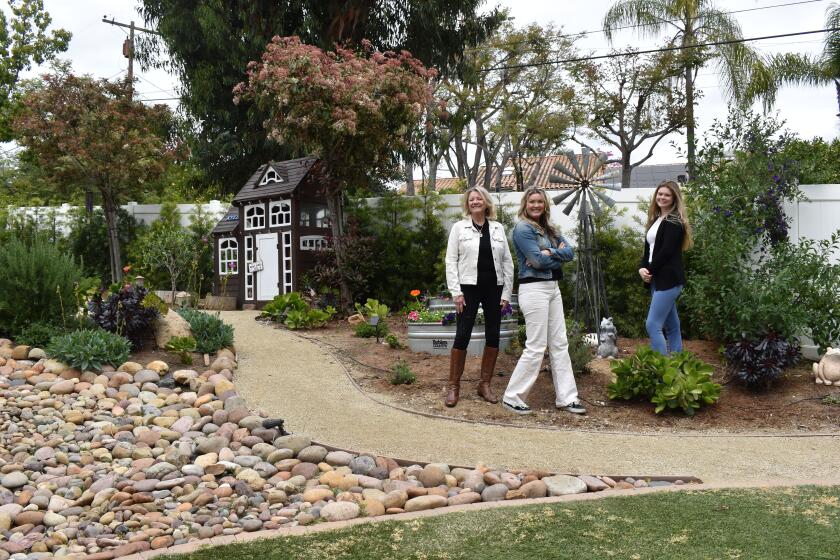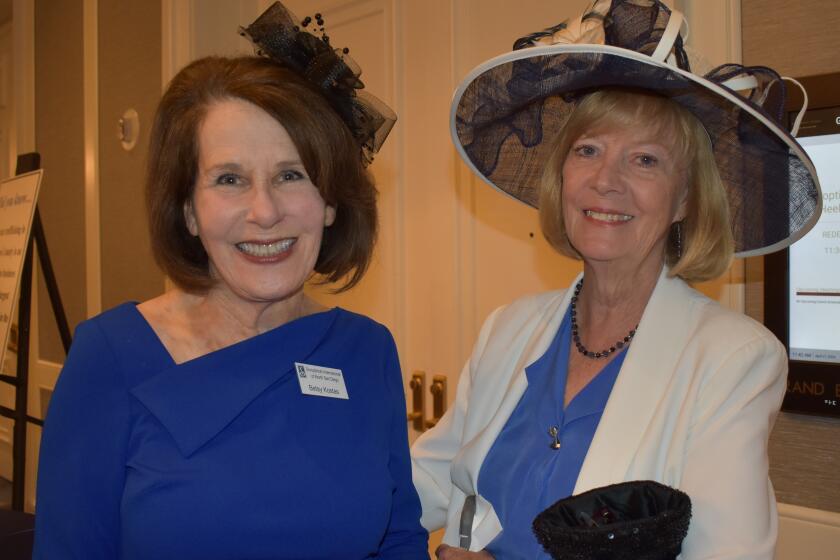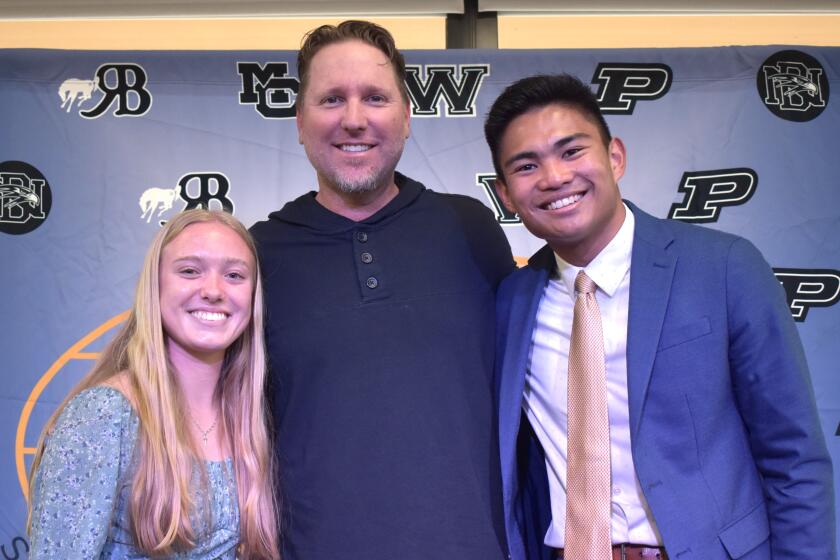Wanted: Caring individuals — The Elizabeth Hospice volunteer training is Aug. 19-21
By Elizabeth Marie Himchak
Caring individuals willing to help those near death and their loved ones have an opportunity to join The Elizabeth Hospice this summer.
Rancho Bernardo residents and hospice volunteers Paula Githens and DeAnn Diggs-Rich said their experiences have been rewarding and provided comfort to the dying in homes, hospitals and nursing facilities.
For 36 years The Elizabeth Hospice, the region’s largest and oldest nonprofit hospice provider, has helped more than 85,000 patients and their families throughout San Diego and south Riverside counties, regardless of their ability to pay for medical, emotional and spiritual support services. Its Center for Compassionate Care also offers comprehensive counseling and grief support services.
About every three months it offers a free three-day volunteer training session, required before locals can join the organization. The next session will be 8:30 a.m. to 3 p.m. Aug. 19 to 21 at The Elizabeth Hospice administrative building, 500 La Terraza Blvd., Suite 130 in Escondido. To attend, call 760-737-2050 by Aug. 13.
During the training, prospective volunteers learn about hospice’s services and ways they can volunteer. These include assisting with complementary therapies like pet, aroma and music therapy plus Reiki and massage, if licensed; visiting with patients; helping families with various needs and working on the administrative side in the hospice office.
Training covers working with non-verbal patients, cultural diversity, complementary therapies and active listening. Volunteers work within their communities and are asked to commit at least four hours per week for a year, according to spokeswoman Lisa Marcolongo.
“We realize that this may not work for everyone, so we are flexible and work with the volunteer’s schedule and areas of interest,” Marcolongo said. “Some volunteers like to work with hospice patients, while others like to work in the office or help with health fairs. Others provide complementary therapies ... we also have veterans who provide companionship to fellow veterans receiving hospice care.”
Githens said she joined The Elizabeth Hospice a year ago because “I desired to give back, pay forward and share my gifts.”
She has been a Reiki practitioner and licensed massage therapist for almost two decades and wanted to volunteer her professional expertise.
Reiki — pronounced “ray-key” — is a holistic tool to help restore the balance between mind and body, Githens said. It is done when the practitioner’s hands are placed above or on the patient’s body, which allows energy to flow between the two individuals.
“In clinical trials, doctors are finding that patients really benefit from natural treatments,” she said.
Before Reiki or massage is performed, the therapies are recommended to the patient or family by the hospice care team. Githens said because many patients and family members experience anxiety and stress during the transition from life to death, Reiki and massage can be very relaxing, help patients be assured and at peace.
Diggs-Rich said she became a volunteer five years ago when looking for something to do during the economic recession. While she had heard of hospice, she had no personal experience with it and found out about it online.
While most patients receive care for a few months at most, her first was in hospice for three years. The 93-year-old had Alzheimer’s disease and dementia and Diggs-Rich visited her for two hours twice a week. Though the patient had trouble remembering, they had conversations, which Diggs-Rich called “meaningful time.”
Until a year ago when Diggs-Rich focused her energies in the hospice office on administrative matters, she had three or four patients at a time — some she visited once or twice and others for several months. For one man she was the listening ear as he came to terms with his impending death since family members were in denial and refused to discuss it with him, she said.
“I helped him resolve his end of life issues emotionally,” Diggs-Rich said. “He needed to talk to somebody since he couldn’t talk to his family.”
Talks can turn spiritual at times, but Diggs-Rich said hospice volunteers guide conversations away from religion out of respect for various beliefs. They are often asked to read to patients, and reading the Bible or another religious book is OK if that is what the patient requests.
Three years ago she became one of hospice’s original callers for its “tuck-in” program. That is where she calls around 50 patients each Thursday to make sure they have enough medications and supplies to get through the weekend. Because caregiving can be overwhelming, she said sometimes the family members forget a medication needs to be refilled or supplies purchased until it is too late. This way, things can be taken care of on Friday so the caregiver or nurses have what is needed.
“I receive so much more than I give,” Githens said, who puts herself in the mind-set of being a child losing its parent or a patient “making the transition.” She said the experience is sad and stressful, but can also be enjoyable and satisfying because she is being there for others.
She said those who have reservations about this type of volunteerism usually have a fear of death and are uncomfortable with things they do not understand.
“I have seen two sisters pass, both of my parents and been there for friends in transition,” she said. “It is a gift ... to be present with them and such an honor. I am giving the caregiver support and the patient companionship and comfort. It is about them, not me ... it is a wonderful opportunity to give back.”
Diggs-Rich said she came to terms with death at age 23 when she had her first of two diagnoses of Hodgkin’s disease. She was later diagnosed with leukemia, which is now “under control.”
She said that first experience with her mortality as a young adult taught her “we all die, so (now) being around elderly people does not affect me. I know we all have to die.”
She said because it is better to have lived a nice life and die with dignity, when someone she knows passes she is sad but the feelings are not overwhelming.
“Volunteerism is an important part (of hospice) and needed for patient care,” Diggs-Rich said.
For information, call 760-737-2050 or go to
.





